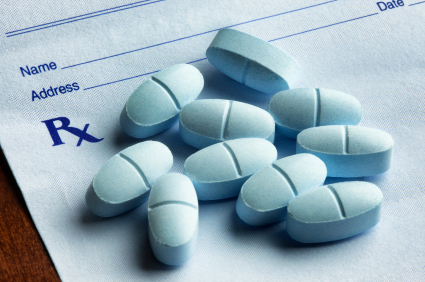AARP Hearing Center

Biologic drugs are often used to treat health conditions that affect older populations, such as cancer, multiple sclerosis and rheumatoid arthritis. Derived from living organisms, biologics have an estimated average cost of $35,000 a year — far more than traditional, chemically derived drugs.
Congress recently granted the Food and Drug Administration (FDA) authority to approve less expensive generic versions of biologic drugs, known as biosimilars or follow-on biologics. But while FDA continues to work on the approval process, policymakers are debating proposals that could make it more difficult for consumers to benefit from biosimilars.
A recent workshop held by the Federal Trade Commission (FTC) explored concerns over efforts that could potentially blunt the impact of biosimilar competition. AARP provided a consumer perspective on the issues that were raised.
State Legislation Continues to Be Problematic
One of the FTC’s primary areas of interest is new state legislation that would make substituting interchangeable biosimilars for brand-name biologics considerably more difficult. For example, some of the bills would require patient consent before a pharmacist could substitute an interchangeable biosimilar for a brand-name biologic, for the pharmacist to notify the doctor of the switch, and for the pharmacist and doctor to maintain written records of the switch for several years.
Supporters say such measures are needed to protect patient safety. However, it is unclear why extra precautions are needed for biosimilars when FDA is already safely approving and regulating their brand-name counterparts. Further, given that FDA has yet to approve a biosimilar or even determine when a biosimilar would be considered interchangeable with a biologic, there is no evidence that patient safety is a concern.
State legislation that unnecessarily impedes biosimilar substitution would likely reduce competition and subsequently increase health care costs, both of which would harm consumers.
What’s in a Name?
The FTC is also interested in the debate over a proposal to create a new, separate naming system for biosimilars and their brand-name biologic counterparts. Currently, brand-name and generic products with the same active ingredient share the same international nonproprietary name (INN), even in different countries. Some groups have argued that interchangeable biosimilars and their brand-name biologic counterparts should have different INNs to help lessen confusion in the marketplace and ensure patient safety.
Other groups believe this proposal would cause confusion among prescribers, who would be required to memorize the names of multiple versions of drugs with comparable clinical effects. It could also make it extremely difficult — if not impossible — for interchangeable biosimilars to be easily substituted for brand-name biologics, which would markedly reduce the savings normally associated with generic substitution.
Why Is Biosimilar Competition Important to Consumers?
The average annual costs for biologic treatments can reach $400,000 per year. These costs can impact not only financial security for consumers but also their health, if high costs limit their ability to continue necessary treatments. With spending on biologics increasing rapidly, competition from lower-cost biosimilars is critical to ensuring the affordability of prescription drugs for patients who need them.
***
Leigh Purvis is a senior strategic policy adviser in the AARP Public Policy Institute. Her work focuses on a variety of prescription drug and mental health issues, with a particular emphasis on prescription drug pricing, biologic drugs and prescription drug coverage under Medicare.































































